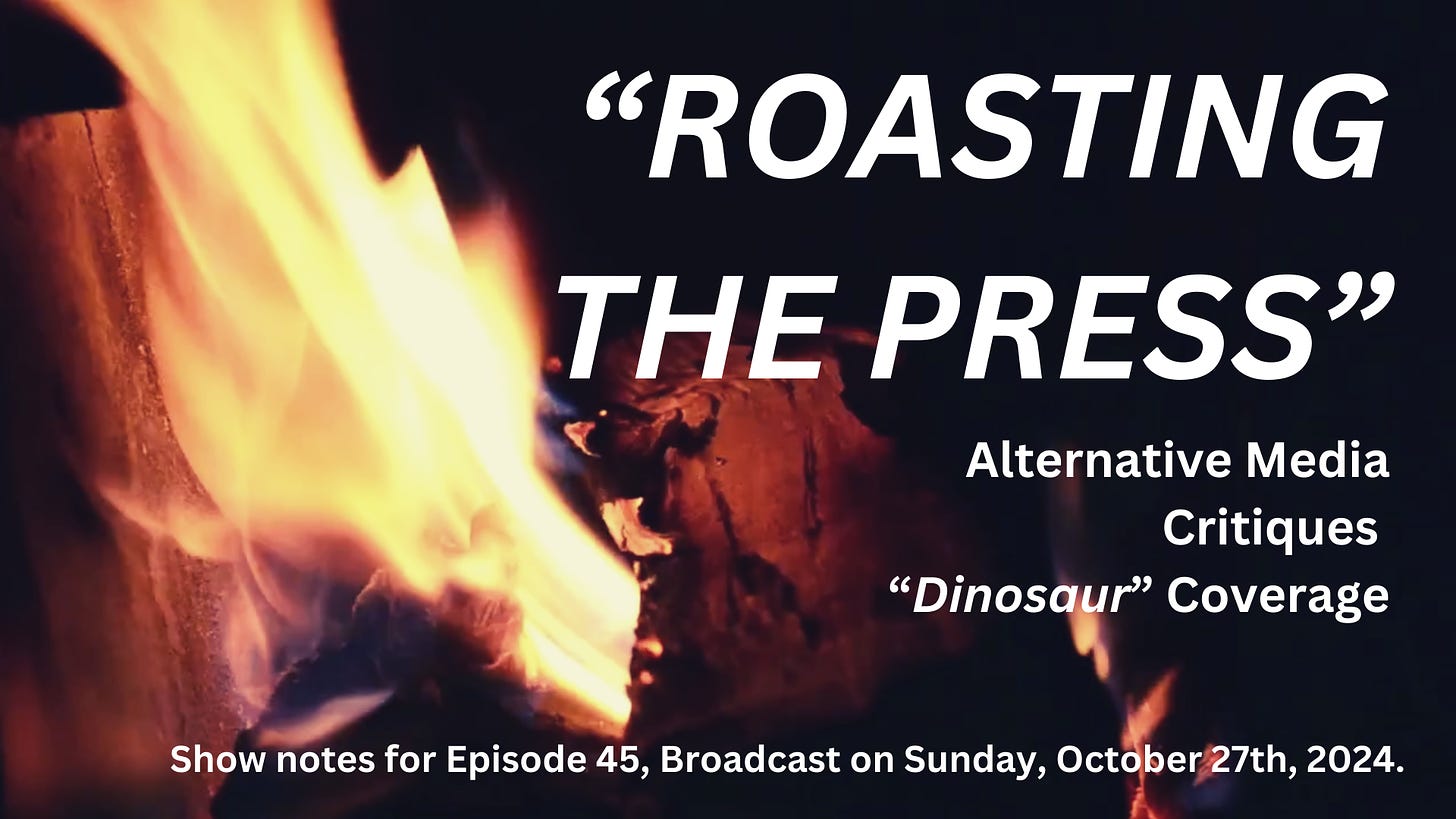Roasting the Press Episode 45 for Sunday, October 27th, 2024
The CRA and the Courts Define Canadian Journalism Badly, The Children’s Aid Society of Peel vs. Maria Hosannah + RFK Jr. & Russell Brand Talk “Critical Thinking.”
The CRA and the Courts Define Canadian Journalism Badly
As noted in the October 18th, 2024 Freedom Forum post, “Canada's Government Media Funding Strategy is a Total Failure,” the Justin Trudeau Liberal government has set up a complicated series of tax credits and grants which essentially covers most of the journalism related activities for legacy media content creators in Canada, even when those content creators are foreign based.
The tax credits and grants provide hundreds of millions of dollars annually to mostly legacy media outlets.
It covers 1/2 to 2/3 the salary of pretty much every legacy media journalist in the country but depends on working for an organization certified as a “qualified Canadian journalism organization (QCJO) under Canada Revenue Agency (CRA) rules.
The CRA designation allows accredited news outlets to receive salary support for journalists plus allows the news outlets subscribers to receive tax credit…
Keep reading with a 7-day free trial
Subscribe to Freedom Forum News to keep reading this post and get 7 days of free access to the full post archives.




